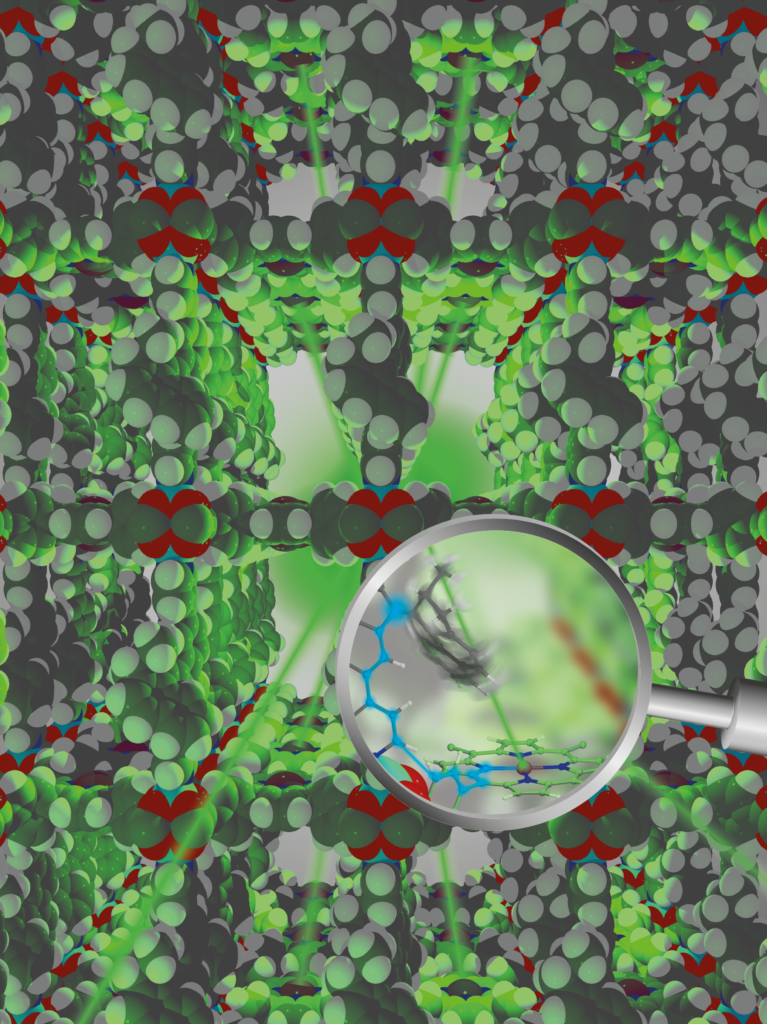Molecular Machines are dynamic molecular species that transfer a physical or chemical stimulus into directed motion. The Nobel Prize in Chemistry 2016 was awarded to Jean-Pierre Sauvage, Sir J. Fraser Stoddart and Bernard L. Feringa “for the design and synthesis of molecular machines”. And The Future of Molecular machines seems bright with many new structures, functionality and various stimuli to drive dynamics being explored.

copyright: Simon Krause
The approach of our research makes use of the many established molecular machines and tries to enahnce and explore their functionality by implementing them into extended ordered solids such as metal-organic frameworks. Among different kinds of motion, unidirectional rotation is the most important and versatile. During my postdoctoral reasearch in the group of Ben L. Feringa I explore the concept of framework-embedded molecular motors:
W. Danowski, F. Castiglioni, A. Sardjan, S. Krause, L. Pfeifer, D. Roke, A. Comotti, W. R. Browne, B. L. Feringa, Visible Light Driven Rotation of Molecular Motors in a Dual-Function Metal Organic Framework Enabled by Energy Transfer. J. Am. Chem. Soc. 2020, 142 (19), 9048–9056.
J. D. Evans, S. Krause, B. L. Feringa, Cooperative and synchronized rotation in motorized porous frameworks: Impact on local and global transport properties of confined fluids. Faraday Discuss. 2020, 10.1039/D0FD00016G, (in press).
Essential Questions of my reserch tackle the question if/how dynamic molecular properties can be established in the solid state and how they can be utalized to change the physical properties of the solid. The approach is based on the concept of „Robust Dynamics“ and builds on work recently summarized by P. Martinez-Bulit, S. J. Stirk, and S. J. Loeb in „Rotors, Motors, and Machines Inside Metal–Organic Frameworks„